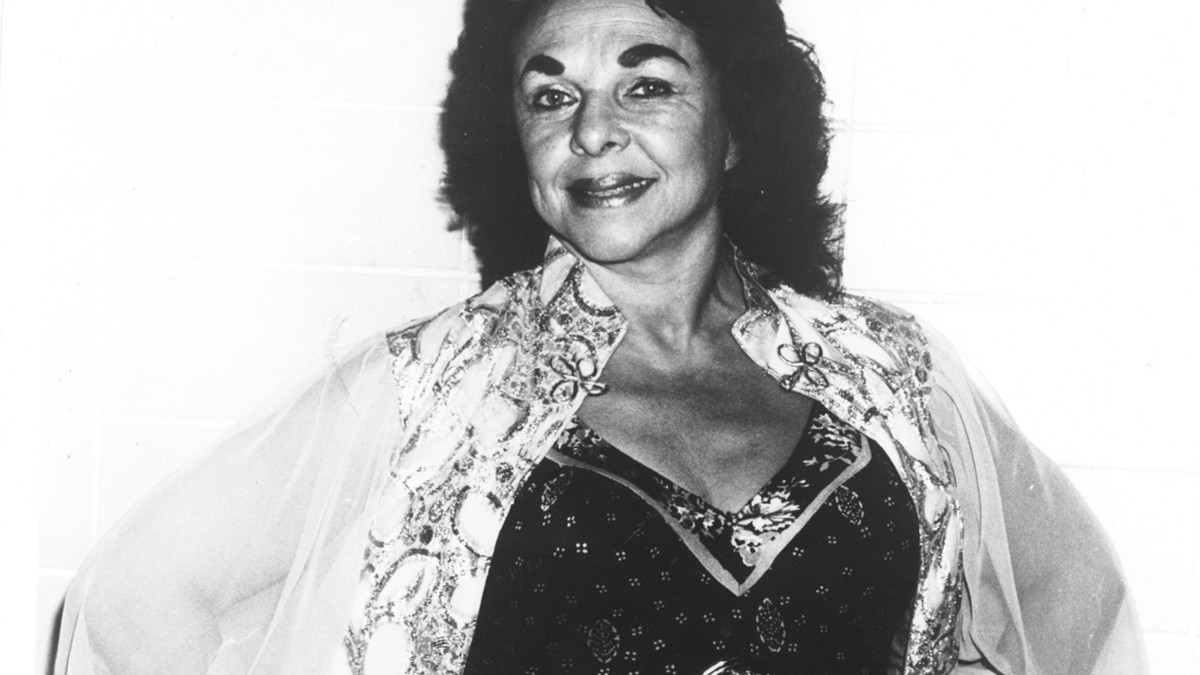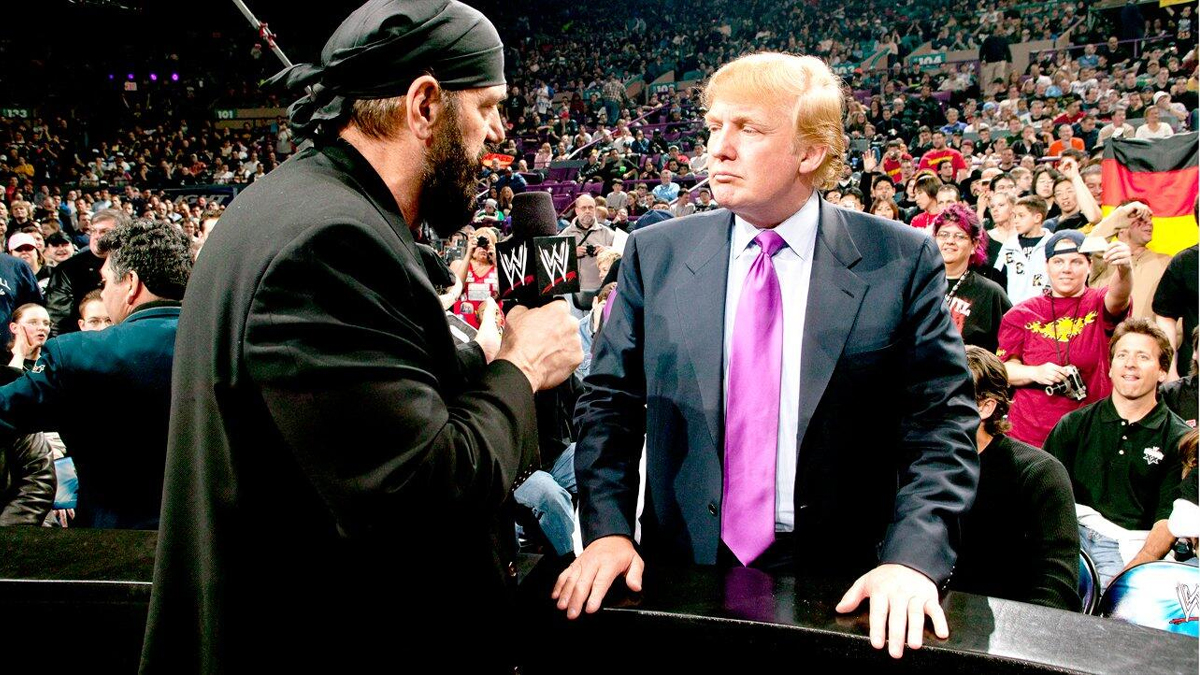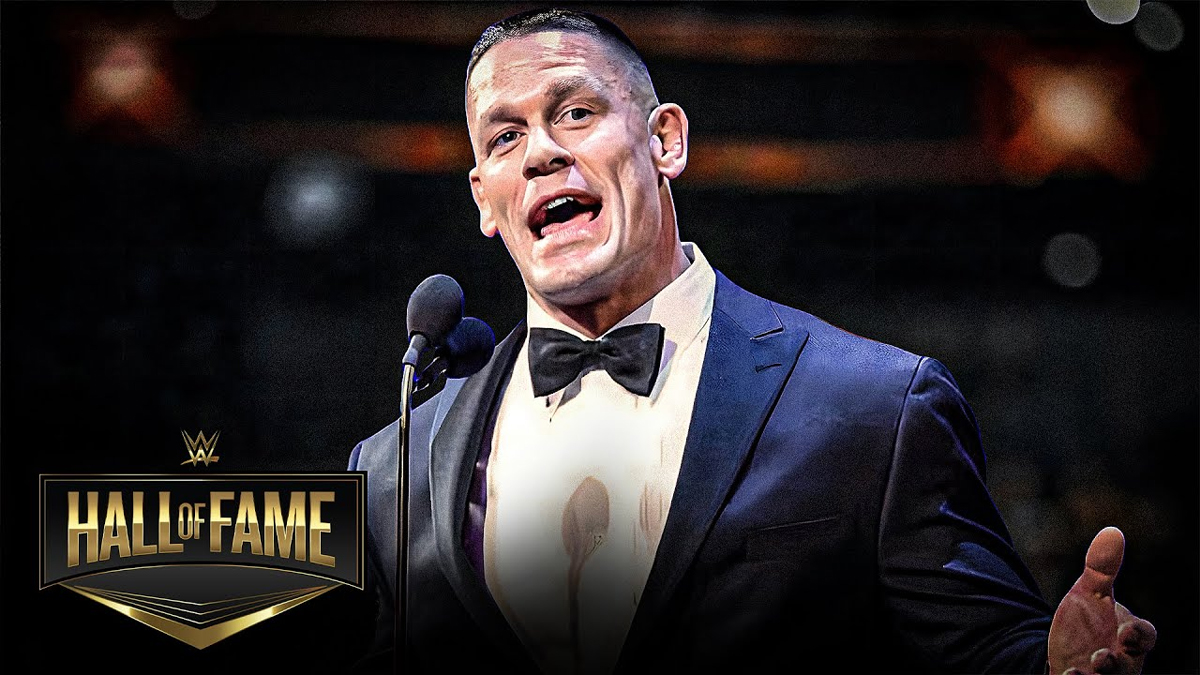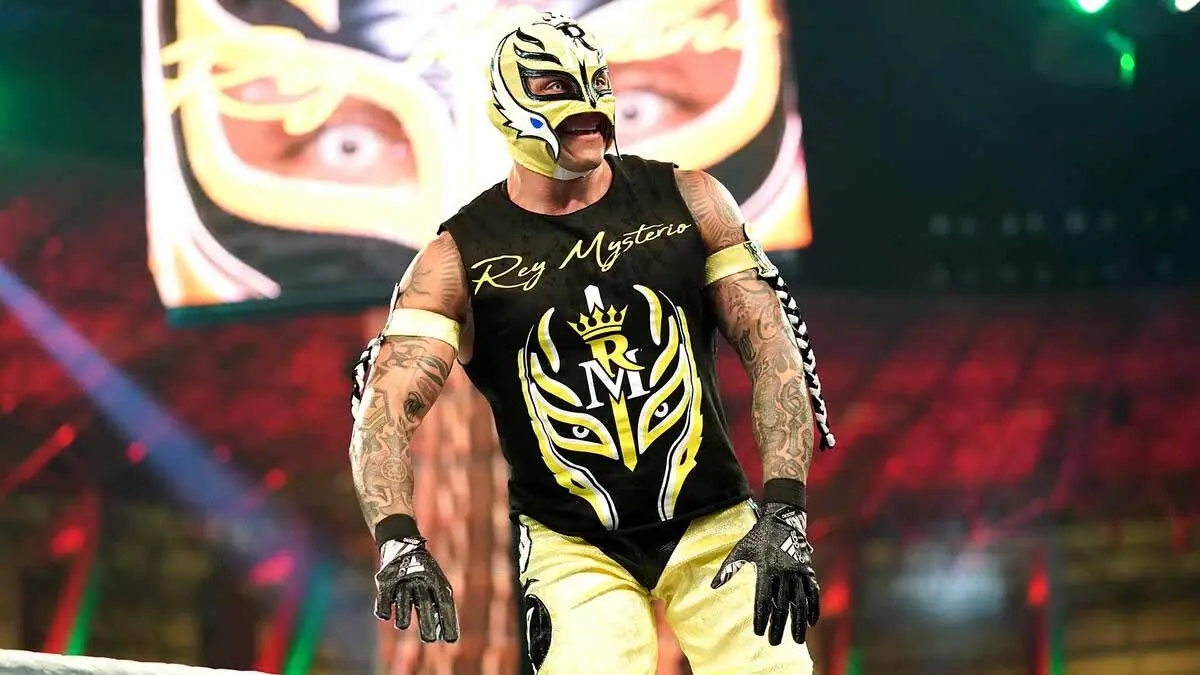The most raucous and controversial panel at last week’s Cauliflower Alley Club reunion had the Fabulous Moolah on the docket. With a panel of women wrestlers who worked with her sharing their memories, and a standing room only crowd whooping and hollering, it was like being at the matches. Or, as 82-year-old veteran Beverly Shade said, Moolah “made the main event at the CAC.”

The scene was the Gold Coast Hotel & Casino off the Strip, in a banquet hall a short walk from the CAC’s hospitality room. The host, Dan Murphy, a senior writer at Pro Wrestling Illustrated and co-writer of 2017’s Sisterhood of the Squared Circle: The History and Rise of Women’s Wrestling (and occasional SLAM! Wrestling contributor), had to scrap his original plan for a panel when The Sensational, Intelligent Destroyer, Dick Beyer, was unable to travel. Scrambling, Murphy and Ron Hutchison, who is the CAC’s seminar coordinator, hit the proverbial jackpot with the Moolah panel.
In attendance at the 2018 CAC reunion were a gang of retired women wrestlers, spurred on by their de facto leaders, Debbie Combs and the still-active Malia Hosaka, who set out to contact as many names as they could and help financially where needed to get everyone to Vegas. It was akin to going to your high school reunion, where the clique of hot girls you never had a chance with were together again, raising their voices, sneaking a drink and a smoke, and loving being the centre of attention, just like old times.
So it all came together perfectly on the panel, which morphed and swayed as Murphy got more requests from women who wanted to speak out. In the end, the ladies at the table ended up being Despina Montagas, Princess Victoria, Beverly Shade, Joyce Grable, Judy Martin, Peggy Lee Leather, and Malia Hosaka; other notable veterans in the room included Sandy Parker, Debbie Combs, Natasha the Hatchet Lady, and Ramona Isbell.
Officially, the panel was called “The Fabulous Moolah: The Facts and The Fiction.”

“The timing seems right to really take a look at Moolah and her legacy,” began Murphy, detailing the recent controversy at WrestleMania 34. World Wrestling Entertainment announced that its women’s battle royal would be known as the Fabulous Moolah Memorial Battle Royal, mimicking the men’s Andre The Giant Memorial Battle Royal. Very quickly, however, accusations and dirt were thrown around via social media — that Moolah had pimped out wrestlers under her care, that she kept them drugged up, that she stole from the girls. After the outcry, the “exclusive presenting partner” of Mania, Snickers (owned by Mars Wrigley Confectionery US), reacted.
“We were recently made aware of the World Wrestling Entertainment Inc’s (WWE) decision to honor a former wrestler during the upcoming WrestleMania 34 event,” read a statement from Snickers. “As a principle-based business that has long championed creating inclusive environments that encourage and empower everyone to reach their full potential, this is unacceptable. We are engaging with the WWE to express our disappointment.”
With two weeks to go before WrestleMania, WWE dropped the Fabulous Moolah name, and it was The WrestleMania Women’s Battle Royal on April 8, when Naomi ousted Bayley for the win.
Throughout the hour and 20-minute panel, there was a lot of talk about two people: The Fabulous Moolah, wrestling champion, and her real-life counterpart, Lillian Ellison, who died in November 2007. There was consensus too; WWE and ultimately Vince McMahon were wrong in acting so quickly and decisively to remove Moolah’s name as her legacy as an in-ring performer is unparalleled.
“Moolah was a fantastic woman. What Vinnie has done, the only word I can use is ‘chicken-shit,'” said Princess Victoria (Vicki Otis), getting riled up and pointing to others on the stage. “Moolah is a part of our history. If it wasn’t for Moolah, she wouldn’t be here, I wouldn’t be here, she wouldn’t be here, she wouldn’t be here.”

Joyce Grable (Betty Murphy), perhaps closest to Ellison from her many years as trainer at Moolah’s school in Columbia, S.C., shared a similar sentiment. “I think Vince should have stood up and been a man. I know it’s publicly-owned now,” Grable said. “He should have been a man and said, ‘No public is going to tell me how to run my company.’ Because Moolah had made him a lot of money, and had been by his dad’s side the whole time, and she deserved a battle royal.”
“Moolah built us. She built the women. She was the one who was here and the reason the women that we have here today and here today are here because of her,” said Hosaka. “I stood up for Moolah, because regardless of what you feel about her as a person, Lillian was not Moolah. Moolah was the icon, with a capital ‘I,’ and that’s all the public knew. So to drag her name through the mud as Lillian and take away from what was Moolah’s legacy was 100 percent more than wrong.”
While there was agreement on the battle royal name, and there’s a campaign to make WWE apologize at thefabulousmoolah.com run by Nigel Sherrod, the only other thing that would be considered a consensus would be that Ellison was a promoter and a businesswoman, running things her way, replete with shady financial dealings and questionable methods.
Despina Montagas was the first to lay things out. Emotional over seeing her “sisters” for the first time in more than 30 years, she had to stop on a couple of occasions to compose herself. Once the tough training was completed at Ellison’s school, life on the road was tough.
“You’re working hard, trying to be the best you can be. Then you get to go on the road with these wonderful people here. Being in the ring was the best thing, you know? Entertaining the people,” said Montagas. “It wasn’t easy. … I knew there were things going on that weren’t right, the way Moolah ran her organization. But she had power and she had experience and she was good at what she did, and she had the connections. But I couldn’t handle seeing things going on that weren’t right. I mean, when you are in the business, and you’re on the road with your sisters, side by side, and you don’t know where your next meal is coming from sometimes, you need a mother figure or a father figure, you need somebody to care about you. We really didn’t have that. We had each other.”
Montagas quit after a year, and sold life insurance. But the road called her back, and she remained an independent, primarily getting booked through Debbie Combs out of Nashville.

There was plenty of back-and-forth, including Hosaka often acting as a second moderator; she asked Montagas to clarify her business deal with Ellison.
“She took 25 percent … That’s really high. I think the worst part was, we’re on the road, we’re working at Madison Square Garden, we’re working in AWA, huge arenas, which was wonderful. And then you get your paycheck and there’s no actual check. The checks were being signed by her, forged,” said Montagas.
Ellison knew how to push the right buttons too, to keep everyone on edge, said Montagas. “The worst thing is, the girls, we all love each other and care for each other, in the ring you’re protecting each other, and then you have the person that is supposed to be handling your business throwing you under the bus and talking things about the other girls that are not true, and just keeping the shit rolling, so it’s a rolling pile of shit constantly going, and everybody’s mad at each other and nobody knows why — and then you’ve got to go on the road and work with everybody. So the gossip and the money situation was really bad.”
They all seemed to have stories of Ellison and money.
Judy Martin (Judy Hardee) fought with WWF to “start getting our checks sent directly to us, and they started sending our checks directly to our mailbox … Lillian did not know about that, and at the end, she wanted to know where the checks were.” Martin detailed how she approached an attorney in Columbia, S.C., about possible legal action against Ellison. “The very words he said, ‘You know who you’re dealing with,'” recalled Martin, who never took legal action.
Princess Victoria said she “never saw a check.” But sometimes there were cash payments. “Bill Watts was the only one paying the girls the money right in your hands. And I could never figure out why I could go work for Bill and make in a day what I made in a week with the WWF. That’s the way it was. My best year was $10,000, and I was on top.”
Joyce Grable tried to clarify how checks worked to a crowd that consisted of many who transfer money electronically without a second’s thought. It made sense on one level, said Grable. “We’d be gone for six months before we could get back home. You can’t sit on a check for six months and expect it to be good.” Since she lived on “Moolah Hill” — the area near the training school where many of the wrestlers lived — and since she was there as a trainer much of the time (and in fact had a hand in training most of the panel), she often sat down with Ellison and went through the money made in each stop.
A question from the audience asked whether the 25 percent was normal in wrestling; not exactly, it was established. The midgets apparently sent 50 percent of their earnings to Lord Littlebrook. Many trainers asked for a percentage from their students once they started getting booked, including Verne Gagne. Think of it like a Hollywood agent, said Grable. “If they do all the work, they call, they get your bookings, they get your airline tickets, they deserve something.”

“Lillian was a promoter like any other man promoter is in this business,” said Martin. “Moolah was in a man’s world, working a man’s job. I saw how she treated people, it was a lot of times unfair to some people. But if you worked for her, you understood what it was to be there. … she got 25 percent of your money, and you knew that from the start.”
Like with the financial dealings, many of the women had stories about Ellison being controlling.
She booked the talent and was the Women’s world champion for 28 years, with short, often unreported breaks in there. “Who on top is ever going to let somebody get over them?” asked Hosaka.
“Watch her matches. I don’t have to tell you how great Moolah was in the ring,” said Princess Victoria. “She was a professional. She was a crowbar at times. ….. You had to read her damn mind, because she wouldn’t talk to you.”
Other times you didn’t want Ellison to talk to you.
Martin recalled one time she went to a bar near the Columbia compound with two other girls, and the next day they were summoned into her office in the exact order they had walked into the bar the night before. “She said, ‘You girls work for me and you’re the champions under me. My ladies are not going to be known as barflies.’ That stuck in my mind,” said the former Glamour Girl with Leilani Kai.

It wasn’t booze but marijuana that got Princess Victoria in trouble. They were on their way to Nassau, Bahamas, for a show, and she smuggled some pot “in my sock, wrapped in a cigarette package, and I got it over there.” Victoria and an unnamed male wrestler went down to the dock to smoke up, watching the tiger sharks swim by. “Well, we got back to the hotel and this little snot tried to get out of trouble with his promoter throwing me under the bus, and told his promoter it was my fault, I got him high. I forced him. I had to put him in a hammerlock!” she cackled, drawing roars of laughter from the crowd.
Later that night, she couldn’t sleep and got a knock on the hotel door. “Moolah came in and she says, ‘What the hell were you thinking? I thought you had common sense. You could have caused Armageddon. You could have been on the front page of the newspaper for being held at customs. You could have ruined everything we’ve worked for the last 40 years. And if you do it again, I will not book you anywhere.'”
Ellison had expectations for her charges, said Grable. “When you went in an arena, you looked like a lady. You looked like you had a million dollars; you might not have known where the next meal was coming from, but they didn’t know it. We dressed, we had our makeup on, we had our hair fixed … We looked like lady wrestlers.”
A much more contentious issue was Ellison and sex. Part of the uproar that got the Fabulous Moolah’s name dropped was over the accusations made by Jeannine Mjoseth, who wrestled as Mad Maxine. In 2014 story on SLAM! Wrestling, Mjoseth told Bill Fernow, “Moolah did send girls out to this guy in Arizona and pimped them out. I actually spoke to him on the phone and asked him what he was looking for. He said, ‘If I’m spending all this money, you know what I want.’ That was part of Moolah’s way of making money. She was just a bad person. Moolah didn’t have a good bone in her body.”
Joyce Grable was quick to the defence. “She never pimped us out, she never did anything. Back then, we had good bodies, we were pretty young women back then,” she said, applause drowning her out. “I had to sneak ’em in if I wanted ’em!”
“If she caught you with men in your room, oh Lord, her ears would bleed,” chuckled Princess Victoria. “And if you were working her that night? She forgot how to work; she’d shoot you. I walked out of the ring one night, my chest had 15 hand-prints from her chops.”
Martin worked for Ellison from 1978 to 1990. “I was the last one to leave what we called the Hill,” said Martin. “I was never pimped out, and for someone to come later on and say they were pimped or drugged and everything like that, [Ellison] didn’t care for drugs. She could drink, but she quit drinking.”
Princess Victoria’s story came close to confirming it, however. “Moolah was not an angel, but she was not a pimp. She sent me to Amsterdam … and she made a very strong suggestion that the gentleman I was going to see, that the nicer I was to him … the better it would be.” She detailed driving this man’s Jaguar down the Autobahn, and the man threatening to take her passport if she wouldn’t have sex with him. Victoria threatened him right back, that she’d beat him senseless and go to the American embassy. “But, did Moolah pimp us out, no.”
Another topic that arose was two sides of Ellison’s generosity. Former CAC Executive VP Karl Lauer, who promoted wrestling in Los Angeles, in introducing the host Murphy, shared a story about Ellison sending him $5,000 when he needed an unexpected medical procedure. Grable had a similar experience; in 1998, her husband had a massive heart attack and couldn’t work, and Grable had three children to take care of. Ellison called around to get Grable some money, $4,000 all told, including money from Titan Sports,. “If she was such a horrible person, she’d have pocketed that money and said, ‘Ha, ha, ha. I got you again, Joyce!'”
However, when Princess Victoria’s career ended in 1984, with a broken neck, Ellison was not as generous. “Unlike others, she did not help me out,” she said. Owing rent on her spot on Moolah Hill, Ellison claimed Princess Victoria’s outfits — the well-known white eagle on a yellow outfit seen in her days as WWF tag team champion with Velvet McIntyre, and another outfit that Ellison had given her as a Christmas present. “She took all my gear for three months’ rent, and I walked out that door with less than $20 in pocket.”
“That’s the Moolah I know. Excuse me. That is not the Moolah I know. That’s the Lillian Ellison I know,” voiced Princess Victoria. “What they have done to her legacy is crap. You can’t erase history. You cannot take Moolah out of the women’s wrestling history and explain how it got from A to B. She was a fantastic worker. She was a bitch at times. But she never pimped us out. But she did do some things that were highly questionable.”
Two of the panel members didn’t say much.

Beverly Shade, the senior member of the panel was more of a contemporary of Moolah’s, though a decade younger. She started out wrestling on her own for two and a half years, and didn’t know Moolah at all. But Moolah had a booking in Japan that she needed filled, so she called Shade, and off she went with Natasha the Hatchet Lady, Princess Jasmine and Tracey Richards. “She gave us a guarantee, we got our guarantee. Came back, she asked us to go to a couple more places,” recalled Shade. From there, she worked here and there for and with Moolah. When Shade and her husband Billy Blue River settled in Tampa, and promoted shows, Moolah would work for them. “I had a business arrangement with her. She treated me fair, I treated her fair, so I’ve got nothing bad to say.”
Peggy Lee Leather (Peggy Fowler) shared a story about getting hurt in Japan, and acting as Wendi Richter’s second. Since it was her first tour of Japan, she desperately wanted to stay. “They cut my pay in half.” There was also a funny moment earlier when it was mentioned that Peggy picked up the strange “carny” language that wrestlers used to use very quickly, and she proved she could still speak it.

Despite all the serious topics, the takeaway from the panel was obvious. Though it was many years ago, marriages, children, and other careers having passed, all the women treasure both the memories and the friendships, male and female, they made in professional wrestling.
“I love this business so much, I wanted to be in it, I wanted to be good at what I was doing. I sacrificed a lot, and I put up with a lot to stay in this business, to do something that I loved,” said Martin. “When I got into this business, I fell in love with it. This business was my drug. I loved getting in there, I loved to entertain people every night.”
“One of the greatest sayings that made your chest swell and showed so much respect is when one of the boys would look at one of the other boys and says, ‘She’s one of the boys.’ You couldn’t get a better compliment than that,” said Princess Victoria, to the applause of many male colleagues in the room, like Cuban Assassin, Brian Blair and Bob Cook.
“I met my husband in a dressing room, with a Japanese look-up dictionary,” said Montagas, married to Tarzan Goto. “We have three wonderful boys, and the rest is history.”
RELATED LINKS



